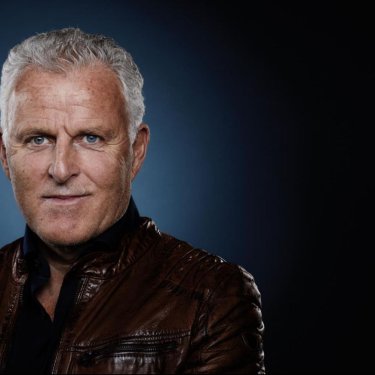Two years after crime reporter’s murder, RSF asks the Dutch authorities for effective protection measures for journalists

On the eve of the second anniversary of Dutch crime reporter Peter R. de Vries’ death, Reporters Without Borders (RSF) salutes the progress in the investigation into his murder but urges the Dutch authorities to make every effort to quickly identify and prosecute all those involved, and to learn from the flaws in police protection exposed by the case, above all by creating tailored protection packages for investigative reporters.
Crime reporter Peter R. de Vries died in hospital on 15 July 2021 from the gunshot injuries he had sustained in downtown Amsterdam nine days before. The threats he had received in connection with his work – for which the police were supposed to be giving him protection – materialised in the form of a targeted shooting attack as he left the studio from which the daily TV programme “RTL Boulevard” is broadcast.
Two initial suspects were arrested on the evening of the shooting and were originally due to be tried in 2022. But seven other persons have been arrested in the past two years, with the result that the Amsterdam court announced in June that a trial will finally begin in January 2024.
The prosecutor’s office has not stopped revealing new facts about the murder of de Vries, who was much admired by both his peers and the general public. Decryption of the communications between his alleged killers revealed in June that the killing was to have taken place a day earlier, on 5 July 2021, but de Vries was not invited to the “RTL Boulevard” programme that day. As a result, the original hitman pulled out and a substitute had to be found. The alleged replacement accepted the contract the same day, which he then carried out with an “ease […] as terrifying as it is significant,” the prosecutor said.
“We salute the efforts undertaken by the Dutch judicial authorities, who must stay the course until all those responsible for Peter R. de Vries’ assassination are convicted. Ranked sixth in the World Press Freedom Index, the Netherlands has a duty to set an example. This also implies that lessons must be drawn from this killing and that investigative journalists must be given more effective protection. RSF reiterates the recommendation it made with its partners for the creation of tailored protection packages.
As well as the murder’s two direct perpetrators, the police have arrested seven other persons accused of providing weapons and a vehicle for the killing, playing an intermediary role and disseminating images of de Vries’ body. A man filmed the scene of the shooting and circulated the video on social media with the aim, the prosecutor said, of sowing terror in Dutch society.
The judicial authorities have not as yet named the murder’s instigator but they have attributed it to a “criminal organisation” responsible for other murders. The name of the now imprisoned Dutch mobster Ridouan Taghi has been mentioned. De Vries may have been targeted because he was acting as an adviser and confidant to the key witness in Taghi's trial, Nabil B., whose brother and lawyer were also murdered. De Vries had often acted as an adviser to crime victims owing to his 40-year career as a crime reporter.
How these murders were able to occur despite the measures taken by the police has been investigated by a state agency, the Dutch Safety Board. In a report published in March, it concluded that the Dutch authorities made mistakes in the protection they provided to de Vries and to Nabil B.'s brother and lawyer. It said the police and public prosecution service did not share “all available information on the threat during the investigation” linked to Nabil B. and did not listen to “signals from those threatened.” It said that "although there were reasons to adjust Mr. de Vries' security measures, the attorney general (...) did not do so," which meant that de Vries lacked “structural security measures for media appearances.” And the police had not read an email sent by RTL 4 notifying them that de Vries had arrived at their studio, the report said.
As far as RSF knows, no one has been held to account for these mistakes. But the authorities have opened a debate on new measures to protect journalists in response to the joint report that RSF and other press freedom organisations issued after a fact-finding visit to the Netherlands in 2022, in which journalists told them that de Vries had not received appropriate protection. They said the national authorities refused to protect him because he had no formal role in the Taghi trial, while the local authorities, who were tasked with his protection, had not found an effective way of providing it after he refused the offer of bodyguards on the grounds that it could have compromised his sources.
